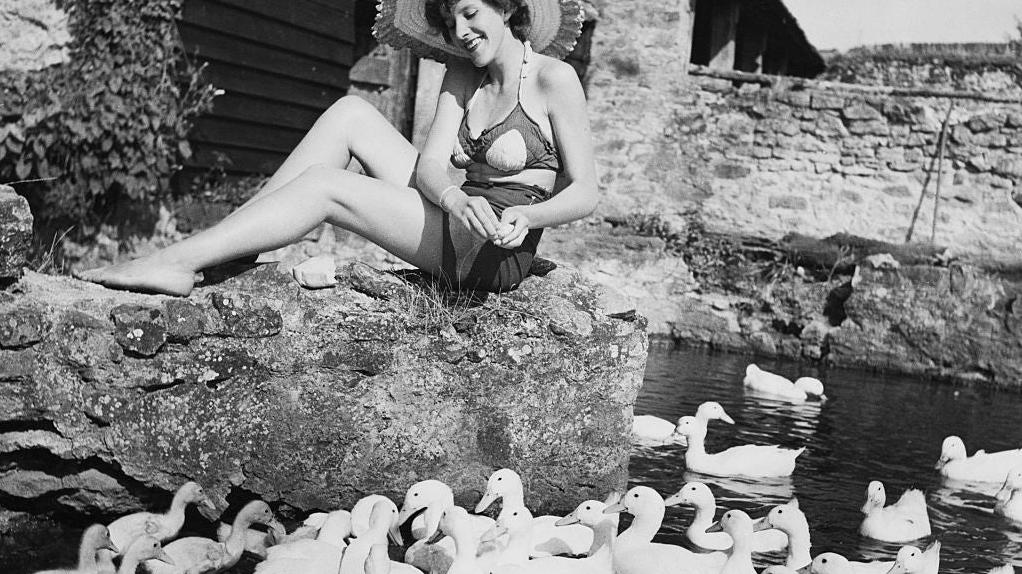Why You Really Need To Stop Feeding The Birds
Experts are asking individuals to avoid feeding their feathered friends as the bird flu outbreak rages on.
Spring is springing (in some places slower than others; hello, 40-degree Chicago weather). With that, you might be tempted to mosey down to your nearest pond and delight the waterfowl with a handful of stale bread crumbs. Listen here, friends: do not do it. Bird experts at the University of Minnesota's Raptor Center are urging individuals to step away from the pond, take down their bird feeders, and leave the wild birds alone until the current bird flu outbreak is under control.
Status of the bird flu outbreak
At this point in the outbreak, nearly 23 million birds have died as a result of the worst bird flu outbreak since 2015. As NPR reports, some birds have died from Highly Pathogenic Avian Influenza (HPAI) itself—but most have been intentionally culled to try to stop the viral spread. That's driven up consumer prices for eggs and chicken meat, which we discussed a few weeks ago.
Commercial flocks remain central to the bird flu discussion, but organizations like the University of Minnesota's Raptor Center are spreading the word that the disease also impacts wild birds. Minnesota news outlet KARE reported on the Raptor Center's efforts, sharing a Facebook post from Raptor Center executive director Dr. Victoria Hall. Hall writes:
"Every day at The Raptor Center, we are seeing the impact of HPAI, as we triage and test birds like bald eagles and great horned owls that are intensely suffering from fatal neurological illness due to HPAI. With these infected birds, humane euthanasia is the only tool we have left to help them. We also know that this strain and outbreak is causing severe illness in other species like geese, ducks, blue jays, and crows."
Hall explains that scientists are struggling to understand how the virus manifests in certain species over others—but they do know the virus can transfer from species to species. Thus, Hall's team is recommending that individuals hold off on feeding birds to prevent avian large gatherings.
"During these unprecedented times, we recommend doing anything that we can to try and help our wild bird populations," Hall writes. "Because the science is unclear on the role of songbirds in this current H5N1 outbreak, one consideration is to not encourage birds to gather together at places such as bird feeders or bird baths. These are places where things like viruses could easily be exchanged between individuals."
Are birds gonna gather anyway? Yes, probably. But we've all seen what happens when a park-goer chucks a handful of baguette into a pond. The ducks all flock to the same spot in a feathered frenzy, which can't be good for infectious prevention.
What to do with leftover bread
"Ah, but Lillian!," you cry. "I have so much leftover bread, and no one to share it with!" No problem, my little chickens. If you have leftover hot dog buns, you can make a mean bread pudding. If your bread is just slightly stale, we've got a trick for that, too. You'll be able to share your crumbs with the local goose population soon enough—but for now, keep your bread and birdseed to yourself.
